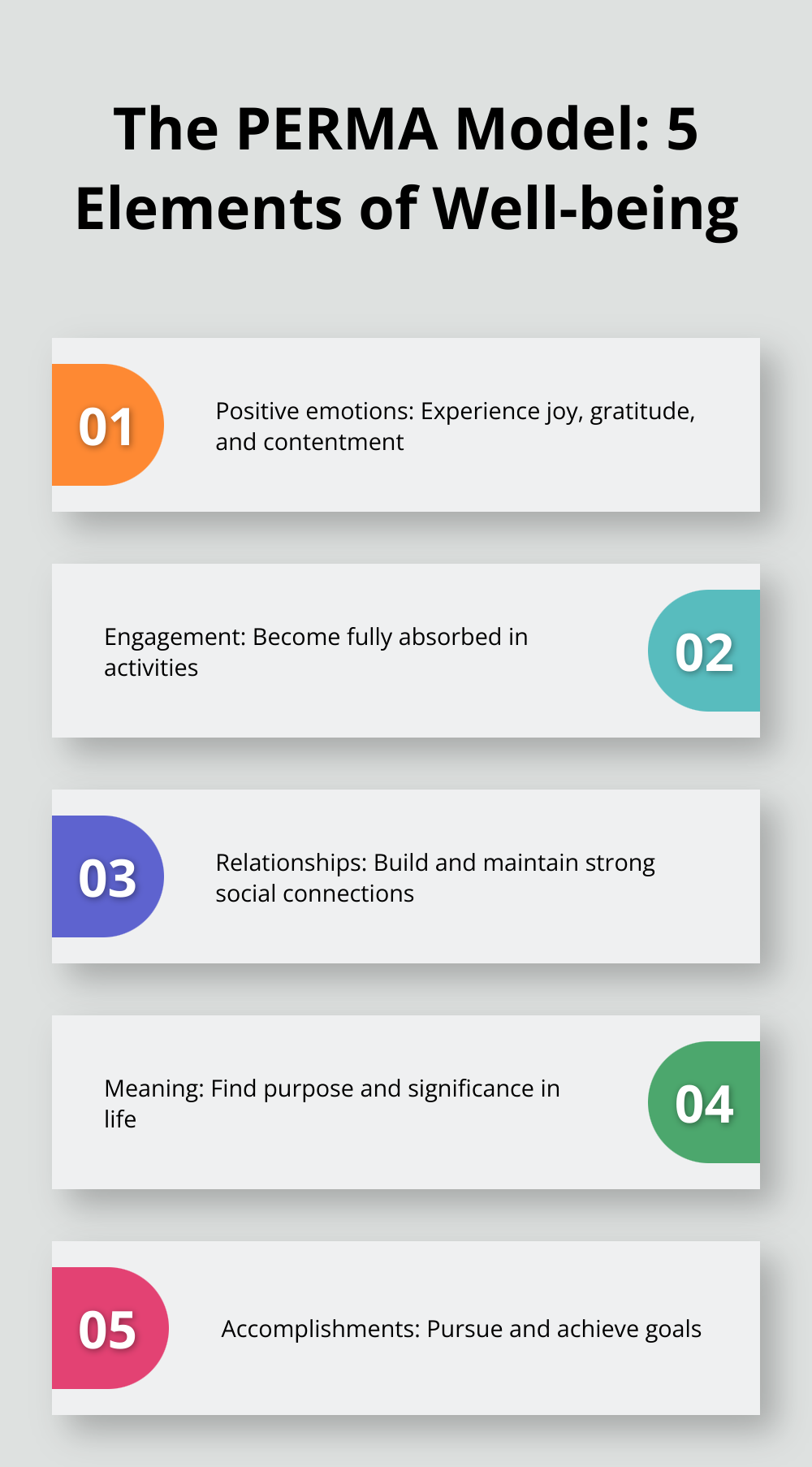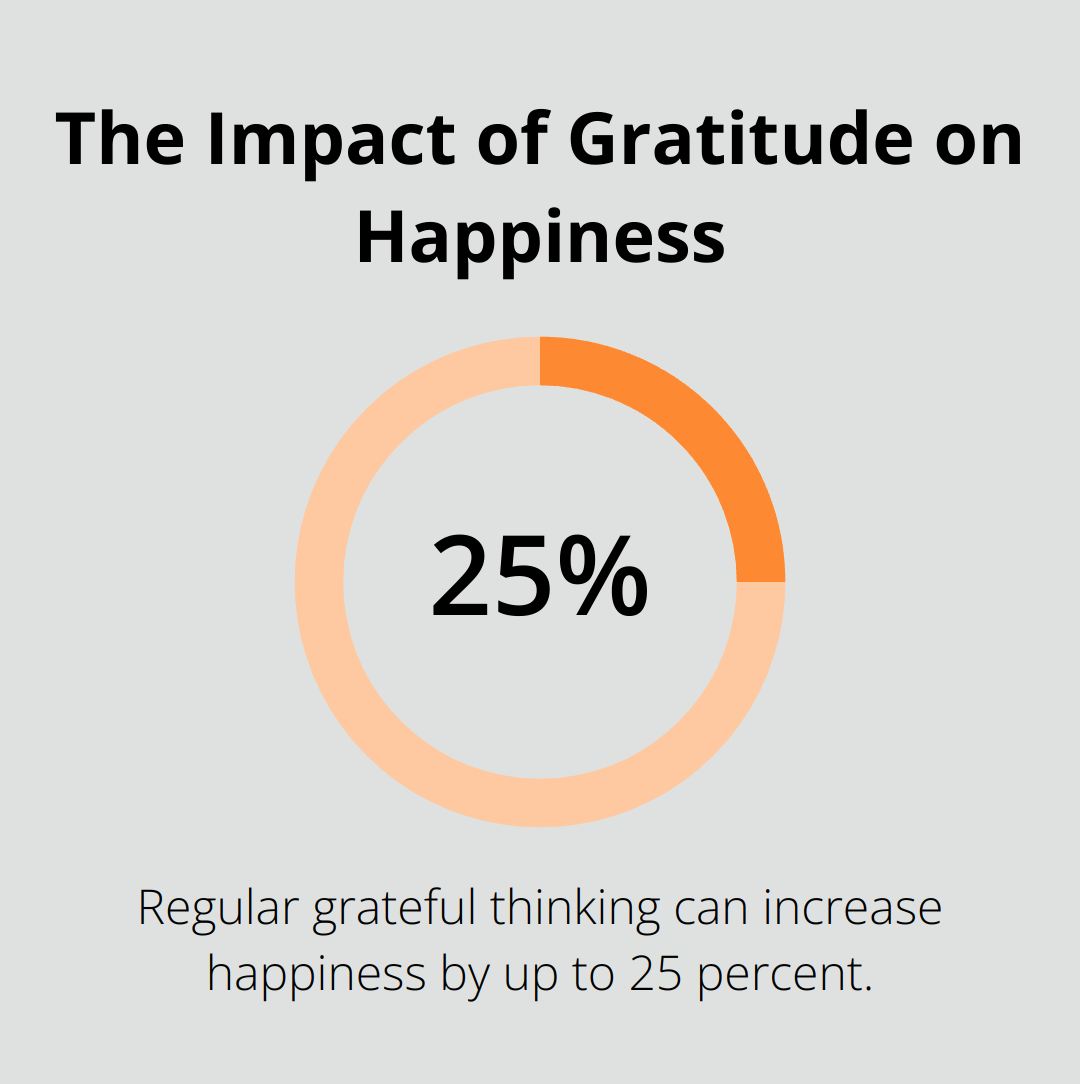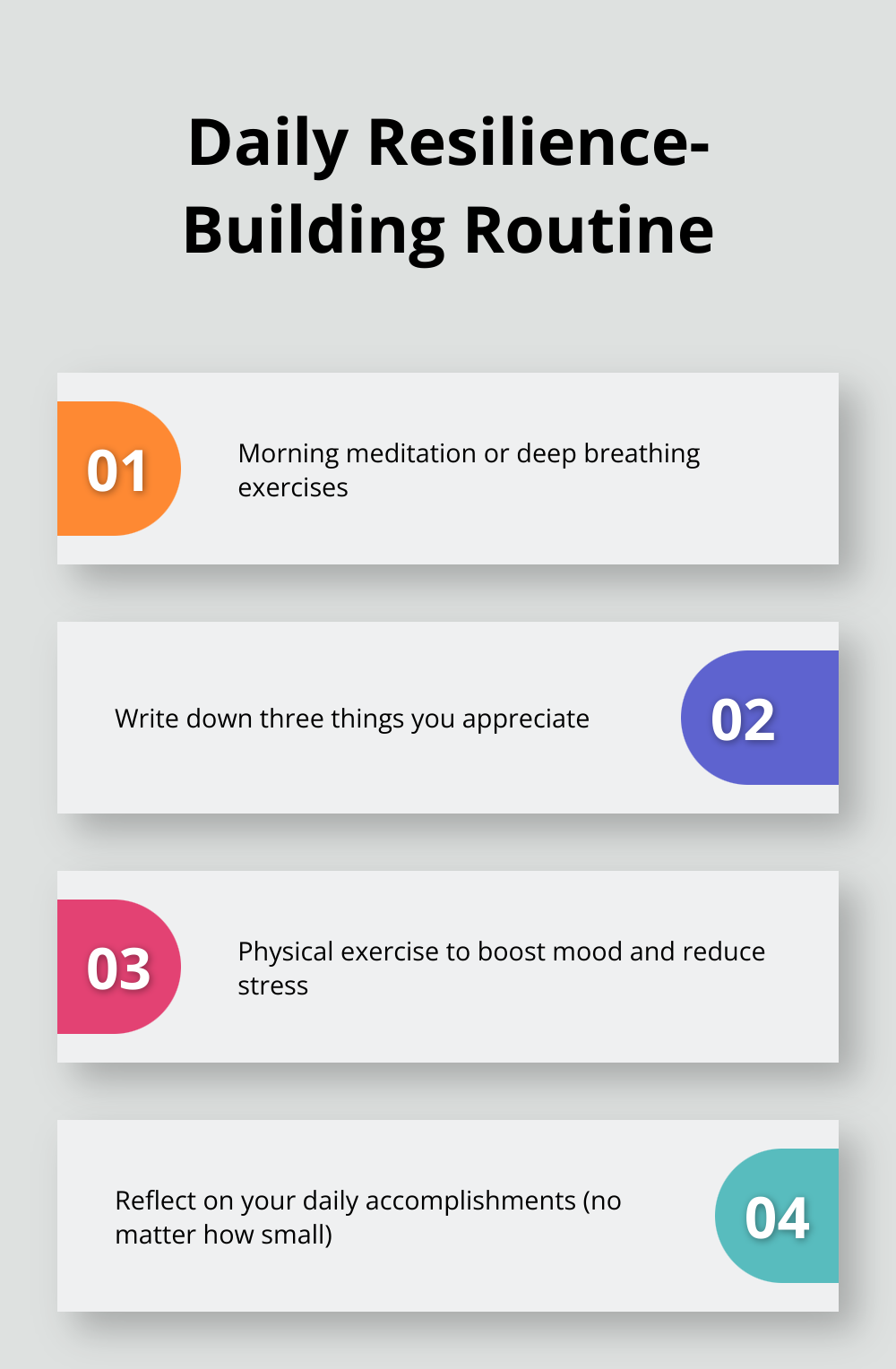At Global Positive News Network, we believe in the importance of positive psychology in daily life. This powerful approach to mental well-being can transform how you perceive and interact with the world around you.
In this blog post, we’ll explore practical techniques to apply positive psychology principles in your everyday routine. By incorporating these strategies, you can boost your happiness, resilience, and overall life satisfaction.
What Is Positive Psychology?
Positive psychology is a scientific approach to understand and enhance human well-being. It focuses on what makes life worth living, rather than solely address mental illness. Dr. Martin Seligman pioneered this field in 2000, and it has gained significant traction in recent years due to its practical applications in everyday life.
The PERMA Model: A Framework for Well-being
At the core of positive psychology lies the PERMA model, which outlines five key elements of well-being:

Individuals can actively work towards a more fulfilling life by focusing on these elements. For example, daily gratitude practice can increase positive emotions, while setting and achieving small goals can boost a sense of accomplishment.
Character Strengths and Virtues
Another important aspect of positive psychology is the identification and cultivation of character strengths. The VIA Institute on Character has identified 24 character strengths, such as creativity, kindness, and perseverance. Research shows that individuals who regularly use their top strengths experience higher levels of well-being and lower rates of depression.
To apply this concept, take the VIA Character Strengths survey and find ways to incorporate your top strengths into your daily routine. For instance, if creativity is a top strength, engage in artistic activities or problem-solving tasks that allow you to express this trait.
The Benefits of Positive Psychology
Implementation of positive psychology principles in daily life can lead to numerous benefits. Studies have shown that individuals who practice positive psychology techniques experience:
- Increased life satisfaction
- Improved mental health
- Enhanced resilience in face of challenges
- Better physical health outcomes
- Stronger relationships and social connections
A meta-analysis published in 2013 found that positive psychology interventions can be effective in enhancing subjective well-being and psychological well-being.
Practical Applications in Daily Life
Positive psychology offers a wealth of practical techniques that you can easily incorporate into your daily routine. These methods range from simple gratitude exercises to more complex goal-setting strategies. The key is to find approaches that resonate with you and to practice them consistently.
One effective technique is the “Three Good Things” exercise, where you write down three positive experiences from your day before going to bed. This practice helps shift your focus towards the positive aspects of life and can improve your overall mood and outlook.
Another powerful tool is the use of positive affirmations. These are short, positive statements that you repeat to yourself regularly. They can help reshape your thought patterns and boost self-confidence. For example, you might say, “I am capable of handling whatever challenges come my way” or “I choose to focus on the good in my life.”
As we move forward, we’ll explore more specific techniques and strategies to apply positive psychology principles in your everyday life, helping you cultivate a more optimistic and fulfilling existence.
How to Cultivate Positivity in Your Daily Life
Harness the Power of Gratitude
Gratitude journaling transforms your focus towards life’s positive aspects. Start your day by writing three things you appreciate. These can range from a delicious breakfast to a beautiful sunrise. Regular grateful thinking can increase happiness by as much as 25 percent, while keeping a gratitude journal for as little as three weeks can have significant positive effects.

To enhance this practice, try a “gratitude visit.” Write a letter to someone who positively impacted your life, then read it to them in person. This exercise boosts your happiness and strengthens your relationships.
Embrace Mindfulness and Meditation
Mindfulness and meditation serve as powerful tools for positivity cultivation. Begin with five minutes of focused breathing or body scan meditation daily. (Many research centers offer free guided meditations to help you start.)
For an active approach, try mindful walking. Focus on each step, the sensation of your feet touching the ground, and your breath’s rhythm. This practice helps you stay present and appreciate your surroundings.
Spread Kindness and Generosity
Acts of kindness benefit others and boost your own happiness. Challenge yourself to perform one random act of kindness each day. Hold the door for someone or leave a positive note for a coworker.
Consider volunteering for a more structured approach. Research suggests that volunteering can be associated with happiness, although the relationship may vary depending on factors such as income level and the type of volunteering activity.
Set and Pursue Meaningful Goals
Setting and working towards meaningful goals provides a sense of purpose and accomplishment. Identify one area of your life you want to improve. Then, set a SMART goal: Specific, Measurable, Achievable, Relevant, and Time-bound.
Break your goal into smaller, manageable steps. Celebrate each milestone, no matter how small. This approach makes your goals more attainable and provides regular doses of positivity as you progress.
Practice Self-Compassion
Self-compassion forms a crucial component of positivity. Treat yourself with the same kindness you’d offer a friend. When you face challenges or make mistakes, acknowledge your feelings without judgment. (This practice helps build resilience and maintain a positive outlook.)
Try a self-compassion break when you feel stressed or overwhelmed. Recognize that everyone faces difficulties, take a few deep breaths, and offer yourself words of encouragement.
As you incorporate these practices into your daily routine, you’ll notice a shift in your overall outlook. The next section will explore how to build resilience and maintain optimism in the face of life’s challenges.
How to Build Unshakeable Resilience
Embrace Challenges as Opportunities
Transform obstacles into chances for growth. When you face a difficult situation, ask yourself: “What can I learn from this?” This perspective shift can turn setbacks into stepping stones for personal development.
Research has shown that individuals with a growth mindset of self-regulation are better equipped to handle challenges and develop resilience.
Reframe Negative Experiences
Your interpretation of events significantly impacts your emotional response. Practice reframing negative experiences by identifying silver linings or alternative perspectives. For example, if you miss a work deadline, consider it an opportunity to improve your time management skills instead of berating yourself.
Dr. Carol Dweck, a Stanford psychologist, discovered that individuals who reframe setbacks as learning experiences demonstrate greater resilience and achieve more long-term success.
Nurture Your Support Network
Strong social connections are essential for resilience. Actively cultivate relationships with friends, family, and colleagues who uplift and support you. Regular social interaction (even a quick chat or video call) can significantly boost your mood and resilience.
A Harvard study spanning nearly 80 years revealed that strong relationships are the best predictor of long-term happiness and resilience.
Practice Self-Compassion Daily
Offer yourself the same kindness you’d give a friend. When you make a mistake or face a setback, acknowledge your feelings without harsh self-judgment. Research shows that self-compassionate people have more emotional resources available to give to their partners and demonstrate greater resilience.
Try this: Place your hand over your heart when you feel down and say, “I’m having a tough time right now, but I’m doing my best.” This simple act can activate your body’s caregiving response and reduce stress.
Develop a Resilience Routine
Create a daily routine that incorporates resilience-building activities. This might include:

A study in the Journal of Personality and Social Psychology found that people who followed a similar routine reported a 25% increase in life satisfaction over three months.
Final Thoughts
The importance of positive psychology in daily life cannot be overstated. You can significantly enhance your overall well-being and resilience by incorporating gratitude, mindfulness, kindness, and goal-setting into your routine. Consistency proves key when you implement these techniques; start small with a daily gratitude practice or a weekly act of kindness, then gradually build upon these habits.
Embracing a positive outlook doesn’t mean ignoring life’s challenges. It equips you with tools to navigate difficulties more effectively and find meaning in your experiences. You’ll prepare yourself better to face life’s ups and downs by cultivating resilience through reframing negative experiences, nurturing supportive relationships, and practicing self-compassion.
We at Global Positive News Network believe in the power of positivity to transform lives and communities. We encourage you to continue your journey of personal growth and share the benefits of positive psychology with those around you. Every small step towards positivity counts (be patient with yourself, celebrate your progress, and stay committed to your personal growth).


